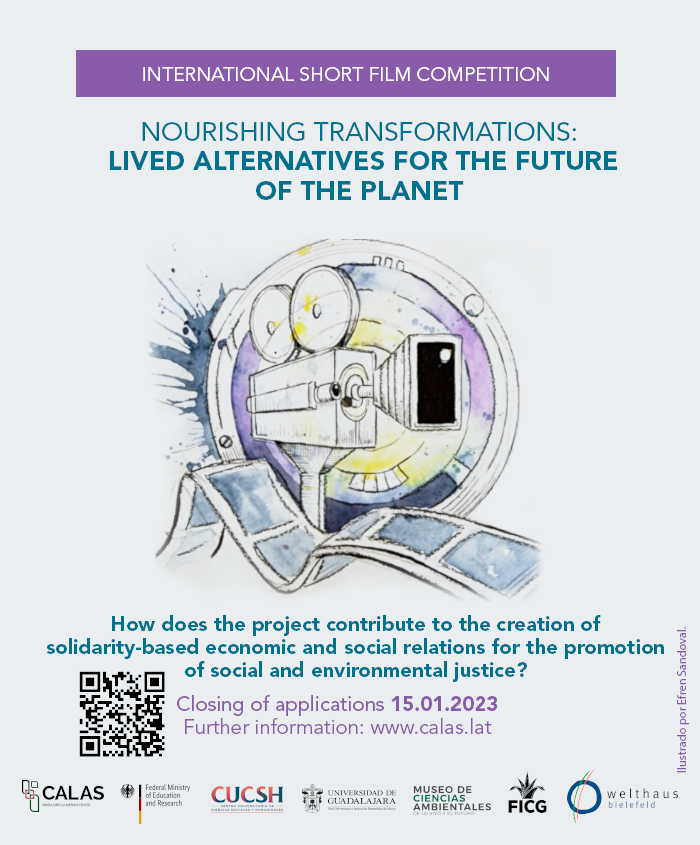Nuevas Plataformas para el Diálogo del CALAS en marcha
Agregar abstract
Centro Maria Sibylla Merian
Agregar abstract
La Universidad de Guadalajara y el Centro Maria Sibylla Merian de Estudios Latinoamericanos Avanzados (CALAS) convocan a los/as estudiantes de licenciatura, especialidades y posgrados a publicar un texto de divulgación científica en el proyecto editorial Conocimientos Indisciplinados.
CONVOCATORIA:
El proyecto Conocimientos Indisciplinados tiene como objetivo publicar materiales de divulgación científica producidos por estudiantes, en co-autoría con algún/a profesor/a, ambos/as de la Universidad de Guadalajara. La finalidad del proyecto es, además de generar espacios de publicación para los/as estudiantes, accesibles a la diversidad de estudiantes y profesores de la Universidad, fomentar espacios de diálogo y aprendizaje inter y transdisciplinarios.
Requisitos:
Características de los textos:
Como guía, sugerimos consultar el primer texto del proyecto:
Documentación:
Los siguientes archivos se deberán enviar al correo c.indisciplinados@administrativos.udg.mx:
Los textos recibidos pasarán por un proceso de dictaminación y selección, debido a que el proyecto editorial tiene cupo limitado. Se seleccionarán los textos más claros, creativos y con temas de interés público.
Fechas importantes:
Fecha límite de recepción de textos: 26 de septiembre de 2022.
Publicación de resultados: 17 de octubre de 2022.
Contacto para dudas y aclaraciones: c.indisciplinados@administrativos.udg.mx

Agregar abstract
Agregar abstract
Agregar abstract
La Sede Cono Sur y Brasil del Centro de Estudios Latinoamericanos Avanzados (CALAS) ubicada en Buenos Aires, junto con el Laboratorio de Conocimiento «El Antropoceno como crisis múltiple: Perspectivas Latinoamericanas», organizan la Plataforma para el diálogo «El Antropoceno urbano y sus transformaciones en América Latina».
Fernanda Oliveira de Souza is a biologist from Universidade de Campinas, Unicamp in Brazil. Afterwards earning a Master degree on transdisciplinary Environmental studies from both the Technical University of Cologne, Germany (TH-Köln) and the Autonomous University of San Luís Potosí, Mexico (UASLP). She has been working with political education and as project coordinator, as for example at Allerweltshaus Köln with the project Dekolonial.
Formato de solicitud/Application form
Formato de solicitud/Application form